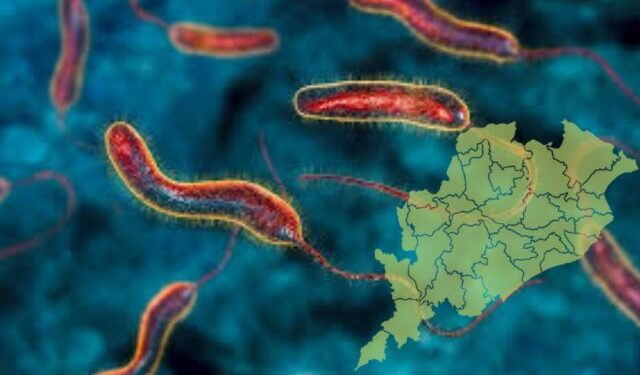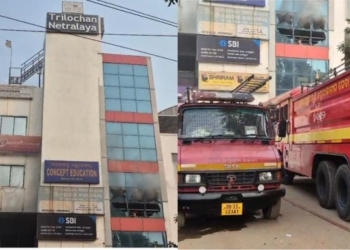The diarrhoeal situation in the state has been brought under control due to the concerted efforts of field-level teams from various departments, including Health and Family Welfare, Panchayati Raj, Drinking Water, Housing and Urban Development, Women and Child Development, and Mission Shakti.
This information was revealed during a review meeting conducted today by the Secretary of Health and Family Welfare. Aswathy S., Director of Public Health Services, Dr. Nilakantha Mishra, presented updates and outlined issues for discussion.
Data indicates that Jajpur district, where the outbreak first emerged on 10 June, has begun to show a declining trend over the past seven days. The outbreak initially reported 126 cases on 10 June, peaking at 150 new cases on 11 June. However, the number of cases in areas such as Danagadi, Korei, Dharmashala, and Vyasanagar ULB began to decline from 12 June onward. On that day, a total of 135 new cases were admitted to hospitals, which decreased to 121 by 15 June and further to 91 on 18 June. As of last evening, 71 new cases were admitted to various hospitals within the district. Although new sporadic cases were reported from Badachana and Sukinda areas, rapid response teams quickly addressed these, providing care at local hospitals. As of last night, a cumulative total of 1,127 individuals had been admitted to different hospitals in the district, with 1,045 successfully discharged after treatment; 82 patients are currently under care.
Keonjhar district has also shown a similar declining trend. On 10 June, 79 people from various areas of the district were admitted, which decreased to 44 on 12 June and further down to 38 on 18 June. As of last night, new cases in the district were limited to just 17. In total, 497 people were admitted to hospitals in Keonjhar, with 454 discharged after recovery and 34 patients still undergoing treatment.
Currently, an anti-diarrhoeal operation is ongoing across the state, with a special focus on districts such as Jajpur, Keonjhar, Bhadrakh, Cuttack, and Dhenkanal. Additional doctors and personnel have been deployed to these areas, and sufficient supplies of medicines, fluids, and injections have been distributed to hospitals, health sub-centres, Asha Karmis, and Anganwadi Centers (AWCs). Expert teams from both the central and state governments are visiting affected areas to monitor and guide field operations. House-to-house awareness campaigns have been intensified in these districts. On 19 June, a total of 400 patients suffering from diarrhoea were admitted to various hospitals, with 299 discharged after treatment.
Minister of Health and Family Welfare Dr. Mukesh Mahaling has instructed that the awareness campaign continue until the end of the monsoon season to prevent potential outbreaks of waterborne diseases, including diarrhoea. He urged the public to remain vigilant and practice good hygiene in both personal and community life. Secretary Aswathy S. also recommended that people follow hygienic practices, wash their hands regularly, and consume boiled water. Water supply agencies have been directed to undertake intensive disinfection of water sources at regular intervals. Secretary Aswathy added, “People have started coming to hospitals at the early stages of infection, which is a positive sign.” She urged health department personnel to continue house-to-house screenings, early detection, and treatment over the next two months.






























